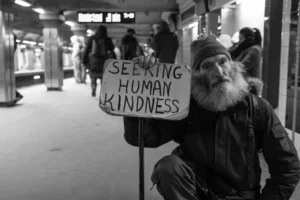Sometimes childhood friendships don’t survive the move into adulthood.
That’s what I reminded myself in the weeks and months following a friend’s wedding. My friend and I were both 20 years old — admittedly new to the adult camp — and our friendship was even more difficult and confusing with her new husband in the picture.
When we were growing up, we spent time together only when our families were together. After her marriage, my family met up with her family, but she wasn’t there.
Over a year passed without us seeing each other. Not because we were angry or disappointed, but because we hadn’t figured out our new relationship and we weren’t intentionally trying to make it work. So it just didn’t happen.
Eventually we began texting each other on our birthdays. Then I took a meal over when they had their first baby. Then she called the day my dad had surgery.
Now, several years after her wedding, our friendship is deeper than it ever was when we were kids. We still don’t see each other often, but we’ve learned what our relationship looks like in our new stages of life.
What’s your attitude?
After all these years, I realize how I could have acted differently and avoided that year of friendship silence. Without realizing it, I had approached our relationship with assumptions and opinions that did nothing to help our friendship and eventually could have ended it.
This is easier to do than we think. Unconsciously, we bring a point of view to every relationship, and some of those perspectives are unhealthy. But we may not know it.
So ponder these tried-and-true approaches to ruining your friendships:
1. Always wait for the other person to take the initiative
Don’t send a text, invite them to something or contact them unless they do so first. Wait for them to prove their commitment to you before meeting them halfway (or less than halfway, if possible). If you think of a fun idea for a get-together or afternoon out, suppress it until they make the effort to reach out to you first.
2. Assume your relationship will continue on without effort
True friends will always understand us and know exactly what we need (cue Disney movie quote here), so your friendship doesn’t need any effort. Avoid intentionality at all costs.
3. Expect the relationship to always stay the same
Time means nothing between true friends, and neither do life changes. Moving, getting married, having kids and changing careers won’t make any difference in your friendship. There is no reason to expect change or allow room in the relationship for it.
4. Keep your spiritual lives off limits
Eternity and spirituality are such heavy topics. Keep your faith between you and Jesus, and when you do hang out with your friends (after they text you first, of course), focus only on fun, goofy activities. Keep the relationship surface level.
5. Assume they want to talk about you more than them
That’s what friends are for, right? To listen to your every thought and care about the minutiae of your daily life. Never mind that important whatever they said they wanted to tell you — it can wait until you finish updating them on your latest social calendar. Never mind if they just got married, had their first kid or moved to a new state — your new diet is more important to talk about.
6. Evaluate the relationship by how much you get out of it
Your friendship is supposed to benefit you, right? Maybe you also evaluate the relationship based on whether your friend also gets something out of it. But you definitely don’t include anyone else in the equation — not mutual friends, family members, church friends or unbelievers who could be served by you and your friend.
It’s not over yet
After my friend got married, I made each of these mistakes at varying levels in our friendship. For the most part, it was subconscious, but I did make assumptions about what our friendship should look like and how much work I should have to put into it — and I almost lost my friend entirely.
Thankfully, that didn’t happen. We both started working for our friendship, and now we have a great relationship. It’s different than what we used to have, but it’s perfect for the life situation we’re in right now. We may not see each other often, but our times together are more meaningful than they ever were when we were kids.
So work for your friendships and fight against these unconscious attitudes. Make room for a new and deeper relationship with your friends as you enter new, different seasons. If you have been following some of those really terrible “suggestions” above, it’s not too late to turn things around and be intentional with your friends.
Of course, some relationships will only be temporary, and that’s OK. But don’t let a friendship fade away just because you didn’t try.
Copyright 2018 Lauren Dunn. All rights reserved.











